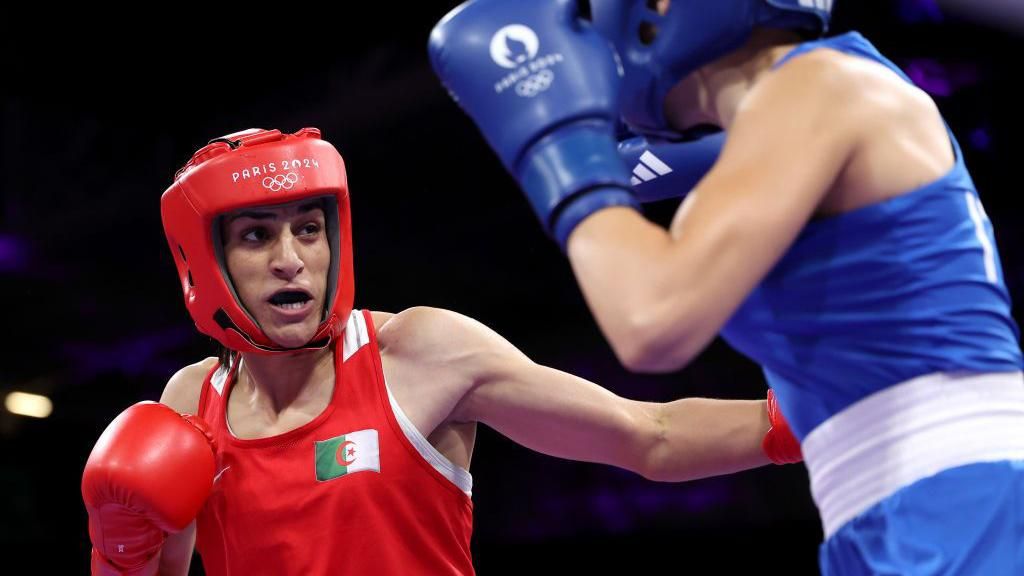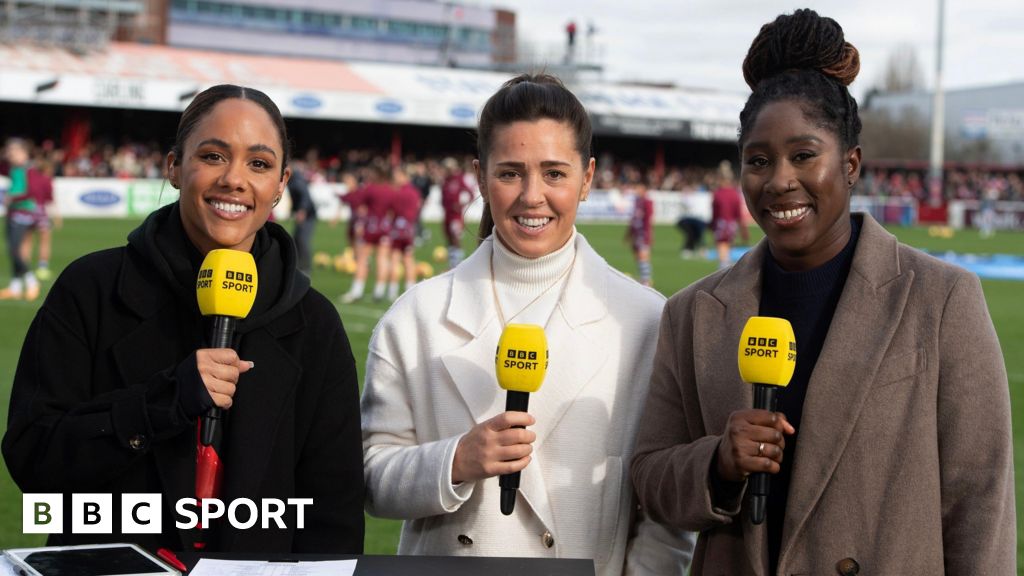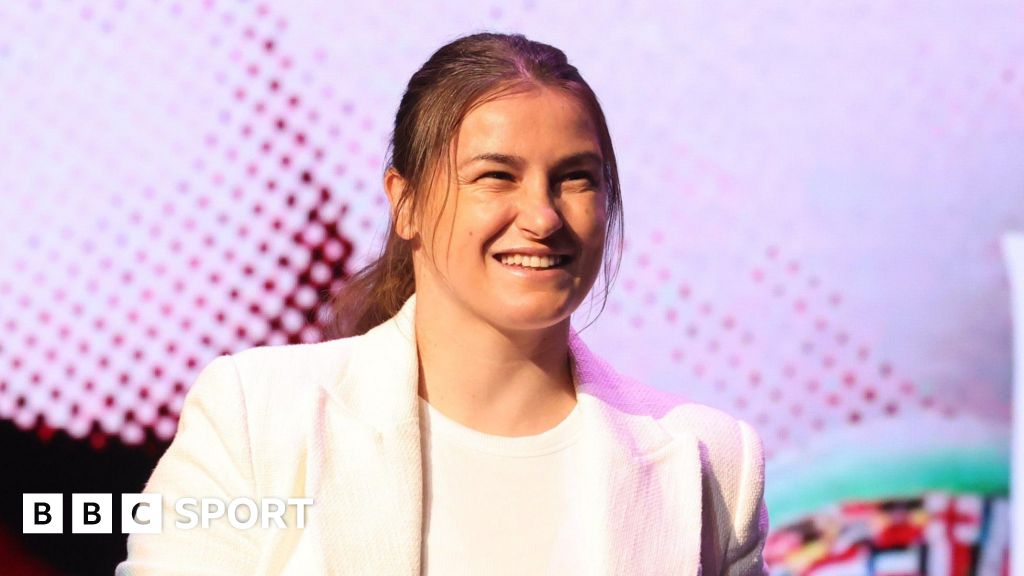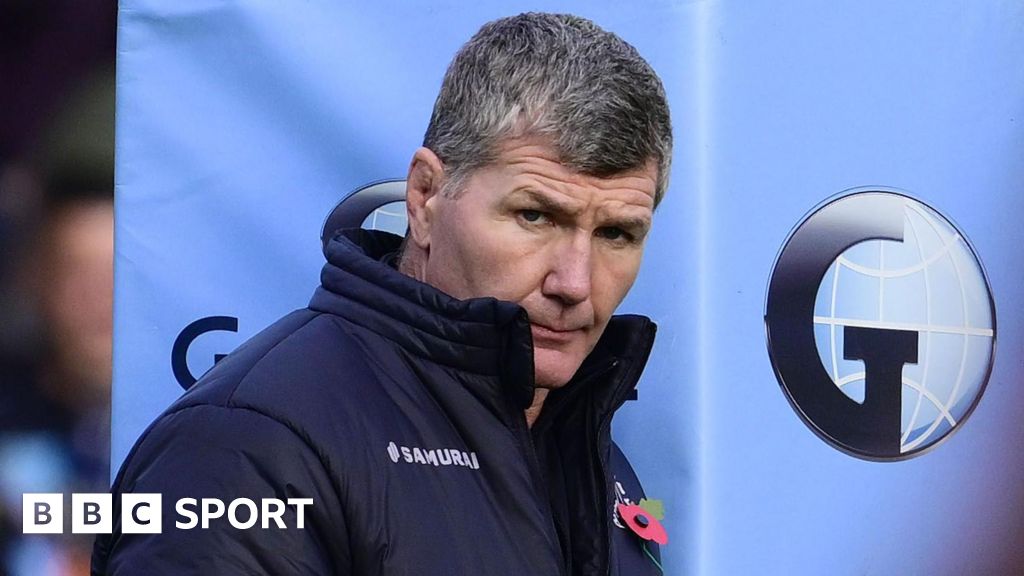ARTICLE AD BOX
 Image source, Getty Images
Image source, Getty Images
Imane Khelif beat Angela Carini on Thursday
Algeria's Imane Khelif and Taiwan's Lin Yu-ting have been cleared to compete at the Paris Olympics despite being disqualified from last year's World Championships after they were said to have failed gender eligibility tests.
Khelif, 25, is through to the quarter-finals after beating Italy's Angela Carini, while Lin also reached the last eight with victory over Uzbekistan's Sitora Turdibekova.
Their participation in the Games has proved controversial given their disqualifications in 2023.
Khelif's bout, which was abandoned after 46 seconds by Carini, has led to some criticising the International Olympic Committee for allowing the entry of a boxer who had previously been said to have failed to meet gender eligibility criteria.
Italian Carini said she ended the fight to "preserve her life", but apologised to her Algerian opponent on Friday.
Khelif, speaking after her victory, said: "I'm here for the gold - I fight everybody."
The International Boxing Agency (IBA), who were the previous organisers of Olympic boxing, have been vocal critics of the IOC's decision to permit the two athletes to compete.
Here BBC Sport takes you through some of the key questions around the topic.
What sex was Khelif assigned at birth? Was she born biologically male or female?
Khelif has always competed in the women's division and is recognised by the International IOC as a female athlete.
"The Algerian boxer was born female, was registered female, lived her life as a female, boxed as a female, has a female passport," IOC spokesperson Mark Adams said on Friday.
"This is not a transgender case. There has been some confusion that somehow it's a man fighting a woman, this is just not the case. On that there is consensus, scientifically this is not a man fighting a woman."
Khelif has spoken about her experiences of growing up as a girl in Algeria and the prejudice she faced playing football alongside boys.
"Don't let obstacles come in your way, resist any obstacles and overcome them. My dream is to win a gold medal," she said in March 2024.
"If I win, mothers and fathers can see how far their children can go. I particularly want to inspire girls and children who are disadvantaged in Algeria."
There is no suggestion Khelif identifies as anything other than a woman.
What is her boxing career to date?
Khelif, 25, has been boxing for eight years.
The Algerian made her debut on the world amateur stage at 19, when she came 17th at the 2018 World Championships. A year later, Khelif came 19th in the 2019 Women's World Boxing Championships.
She made her Olympic debut at the 2020 Games in Tokyo. Fighting in the 60kg lightweight division, Khelif was beaten 5-0 at the quarter-final stage by Ireland's eventual gold-medallist Kellie Harrington.
She then became the first Algerian boxer to win a World Championship medal, taking silver in 2022 after losing the final to Ireland's Amy Broadhurst, who now represents Britain. Khelif followed that by winning the 2022 African Championships and 2022 Mediterranean Games.
In 2023, she won gold at the Arab Games in the 66kg division and earned her place in the 2024 Games by beating Mozambique's Alcinda Panguana in the final of the African Olympics qualification tournament in Senegal.
To date, Khelif has fought 51 times in her career, winning 42 bouts and losing nine. Six of those victories have come via knockout.
Why was Khelif's win against Carini controversial?
Khelif's victory attracted controversy, and criticism from some people, after Carini conceded in just 46 seconds.
The Italian boxer, who said she had to "preserve her life" following the abandoned bout, has since apologised to her opponent.
Much of the criticism stems from Khelif's disqualification at the 2023 World Championships in New Delhi, India.
She failed a gender eligibility test conducted by the International Boxing Association (IBA) hours before her gold medal showdown against China's Yang Liu. The Algerian initially appealed the decision with the Court of Arbitration of Sport, but withdrew her appeal during the process.
The Russian-led IBA said Khelif "failed to meet the eligibility criteria for participating in the women's competition, as set and laid out in the IBA Regulations."
According to the IBA's regulations: "Boxers will compete against boxers of the same gender, meaning Women vs Women and Men vs Men as per the definitions of these Rules."
The IBA defines a woman, female or girl as "an individual with chromosome XX" and men, males or boys as "an individual with chromosome XY".
The IBA denied Khelif's testosterone levels had been tested.
However, in an interview with BBC sports editor Dan Roan on Thursday, IBA chief executive Chris Roberts said XY chromosomes were found in "both cases".
Roberts said there were "different strands involved in that" and therefore the body could not commit to referring to Khelif as "biologically male".
The IOC have raised doubts over the accuracy of the tests.
"We don't know what the protocol was, we don't know whether the test was accurate, we don't know whether we should believe the test," said IOC spokesperson Adams.
"There's a difference between a test taking place and whether we accept the accuracy or even the protocol of the test."
The BBC has, as yet, been unable to determine what the eligibility tests consisted of.
What has changed in Olympic boxing regulation and governance since the IBA's decision?
Unlike previous Games, boxing at the Tokyo Olympics was organised by the International Olympic Committee (IOC) rather than the IBA.
The IOC suspended the IBA in 2019 due to concerns over its finances, governance, ethics, refereeing and judging.
Having failed to meet required reforms set out by the IOC, the IBA was stripped of its status as the sport's world governing body in 2023. That decision was upheld in April 2024 by the Court of Arbitration for Sport following an appeal.
The IOC's decision to strip the IBA of its status came four months after the body disqualified Khelif and Taiwan's Lin Yu-ting from the 2023 World Championships.
In 2021, the IOC released a framework on 'Fairness, Inclusion and Non-Discrimination on the Basis of Gender Identity and Sex Variations', external.
The document sets out 10 principles - not rules - for national bodies to follow when selecting athletes for the Games.
The IOC said it "supports the participation of any athlete who has qualified and met the eligibility criteria to compete in the Olympic Games as established by their IF (International Federation). The IOC will not discriminate against an athlete who has qualified through their IF (International Federation), on the basis of their gender identity and/or sex characteristics."
What testing is conducted in boxing?
In 2019, the IOC delegated responsibility for the organisation and management of doping control at the Olympics to the International Testing Agency (ITA).
The IOC said they take a "zero-tolerance policy" to anyone found using or providing doping products.
Tests include, but are not excluded to, determining an athlete's levels of testosterone.
"There are many women with higher levels of testosterone than men," said IBA chief executive Roberts.
"So the idea that a testosterone test is a magic bullet is actually not true."
Is this a transgender debate?
No.
There is no suggestion that Khelif identifies as transgender or intersex.
What have people said?
"It matters to be able to compete on equal grounds and, from my point of view, it was not an even contest," - Italian Prime Minister Giorgia Meloni.
"I think it has hurt Olympic boxing at a crucial time where its future is still being discussed. It's an absolute disaster," Steve Bunce, 5Live commentator
"If you've got one boxer who far outweighs the strength of another based against eligibility criteria and testing, that would suggest that that person is not fit to be within the female category of the competition," Chris Roberts, CEO of IBA
"I would urge we try to take the culture war out of this and actually address the issues and the people and think about the people concerned and the real damage that is being done by misinformation," Mark Adams, IOC spokesperson.
"It was an incredibly uncomfortable watch for the 46 seconds that it lasted and I know there is a lot of concern about women competitors about whether we are getting the balance right in not just in boxing but other sports as well," Lisa Nandy, Secretary of State for Culture, Media and Sport.

 2 months ago
16
2 months ago
16








 English (US)
English (US)